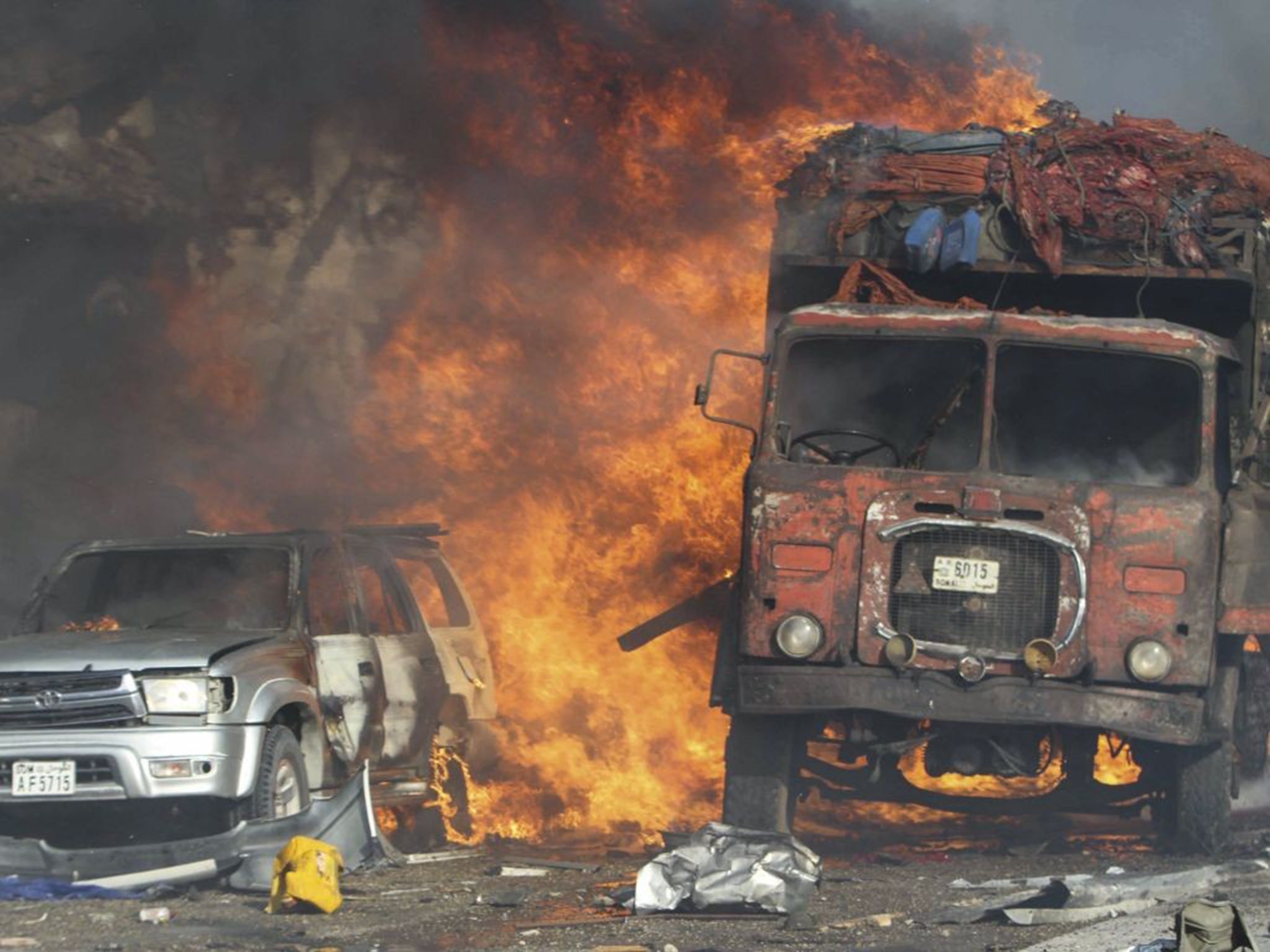Why is the press reporting on Hurricane Ophelia but not the worst ever terrorist attack in Somalia?
If such an attack took place in the UK, or elsewhere in Europe – or frankly anywhere else in the West – it would plainly have taken centre stage for weeks


Your support helps us to tell the story
From reproductive rights to climate change to Big Tech, The Independent is on the ground when the story is developing. Whether it's investigating the financials of Elon Musk's pro-Trump PAC or producing our latest documentary, 'The A Word', which shines a light on the American women fighting for reproductive rights, we know how important it is to parse out the facts from the messaging.
At such a critical moment in US history, we need reporters on the ground. Your donation allows us to keep sending journalists to speak to both sides of the story.
The Independent is trusted by Americans across the entire political spectrum. And unlike many other quality news outlets, we choose not to lock Americans out of our reporting and analysis with paywalls. We believe quality journalism should be available to everyone, paid for by those who can afford it.
Your support makes all the difference.It’s just possible you have heard about Hurricane Ophelia, the remnants of which are battering the Republic of Ireland and parts of the UK (and from where I’m sitting, appear to have turned the sky over London a strange shade of yellow).
Given the British obsession with weather, perhaps it should be no surprise that the prospect of some 80mph gusts is dominating headlines. Handily too, the stiff breeze has turned up three decades after the Great Storm of 1987, which has provided an excuse for lots of recollections of Michael Fish telling people not to worry about hurricanes. (He’s usually misquoted but hey ho.)
True enough, the Met Office has warned of there being danger to life so let’s not be too dismissive. Moreover, there is little more immediate or primordial than weather conditions – I’m the first to admit to a fair bit of cloud-watching over the years; what I can’t predict about the likely route and ferocity of a “passing shower” is, well, considerable.
Nevertheless, it was notable this weekend that, aside from the ongoing sex abuse scandal enveloping Harvey Weinstein, few other news stories got a look in when it came to media front pages.
In particular, Saturday’s truck bomb in the Somalian capital, Mogadishu, received moderately little attention, despite taking the lives of more than 300 people and injuring hundreds more. If such an attack took place in the UK, or elsewhere in Europe – or frankly anywhere else in the West – it would plainly have taken centre stage for weeks. As it is, it seems to have fallen into that category of grim attack in a far-off country beset by an Islamist-inspired, militant insurgency – nasty, of course, but not something that affects us directly and or about which we can do very much.
Somalia, indeed, is far down the list of nations we might think of in that bracket of troubled places. We know all about Syria and Iraq; and quite a lot about Libya. Yemen is next in line; and of course the kidnapping of 276 schoolgirls by Boko Haram in 2014 brought awareness to the horror of Islamist terrorism in Nigeria.
If we think much of Somalia it is probably in connection with pirates, although ironically the piracy problem has improved considerably in recent years. If not pirates, then our first thought may be connected to the UN and US intervention in the east African country in 1992 and 1993 – mainly because one battle during the international effort to bring order to Somalia was immortalised in the film Black Hawk Down.
Inevitably, the situation in the country today is highly complex. A parliamentary election with full suffrage was planned for last year – the first democratic vote since 1969. In the event, ongoing civil strife meant there was an indirect election in which delegates appointed by senior clan leaders chose members of parliament on behalf of the people.
With the United Nations backing the slow process towards democracy and African Union soldiers bolstering the government and its local law enforcement forces, al-Shabaab remains the primary opposition group. Having emerged from the Union of Islamic Courts which held sway in Mogadishu as recently as 2006, the terror group has gradually lost control of most urban areas. But it still has a few thousand fighters in its ranks and – as it proved once again this weekend – is capable of bringing mass slaughter to Somali streets.
The notion of moral equivalence is bandied about far too easily, usually to suggest that relatively wealthy, predominantly white Westerners don’t care about relatively poor, mostly non-white foreigners in war-torn or disease-ridden places a long way away. It is, for the most part, an overly-simplistic narrative which seeks to downplay the perfectly reasonable interests (and fears) of ordinary folk in their own lives and their localities. News, fundamentally, is context-specific: to argue otherwise is disingenuous.
Nevertheless, it is tempting sometimes to wonder if we should pay a little more attention to difficult political situations in far-flung parts of the world; and rather less to the potential consequences of a system of moderate low pressure in the Atlantic, no matter how much hot air it produces.
Join our commenting forum
Join thought-provoking conversations, follow other Independent readers and see their replies
Comments